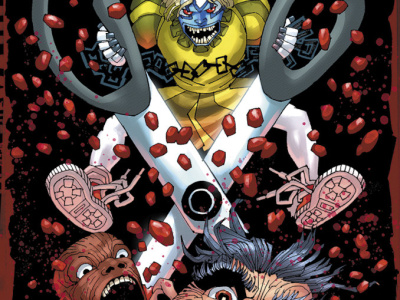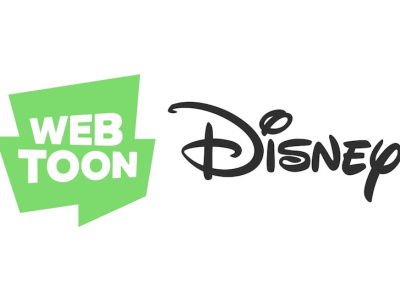Stephen W. Saffel, Editor/Content Developer in Forest Hills, New York, read Steve Bennett's latest column (see "Confessions of a Comic Book Guy--The New New World") about recent industry events of the last few weeks and had this to say:
As usual, Steve Bennett offers an enjoyable and thought-provoking perspective of the game-changing events of the last few weeks, including his comment that the big two can no longer claim, "we just don't have the money." There's one aspect of the money question that intrigues me, and please forgive me if this has been discussed before. It's not easy to keep up with all of the discussions!
The key for both DC / Warner and Marvel / Disney is intellectual property development. From Iron Man to Jonah Hex, comics have yielded some surprises, especially when you factor in Wanted, A History of Violence, and other such properties. All of these were developed for the relatively inexpensive comics platform before they were taken to another level.
But with diminishing sales come the prospect of diminishing returns. This has led to the placement of comics on other platforms, including the web and gaming systems, all in the search of larger audiences. Yet the comic book medium itself still holds so much promise, and there are still many folks who want to hold the physical object in their hands, to have that artifact in their possession.
So what if the big two decide that it's time for comics to become ubiquitous once again (I looked it up, just to make sure I was using it correctly. Merriam-Webster defines 'ubiquitous' as "existing or being everywhere at the same time: constantly encountered: widespread." And that's what I was shooting for.)? With the marketing power at their disposal, could Warner and Disney bring down the price of comics, so that they become casual purchases once again? Could they remove the hesitation factor from consumer spending?
This might cause a short-term drop in revenue, but if both companies put their marketing weight behind the characters, it might lead to legions of new readers. Both publishers have flirted with programs that put comics in the hands of the general public, such as the newspaper distribution of titles such as Ultimate Spider-Man. And here we are, nine years later, with Ultimate Comics Spider-Man #1 back at number 11 on the ICv2 Top 300 Comics list for August 2009, still generating sales of the comics and book collections.
It might just be my own fondness for paper, and certainly upcoming advancements such as the full-color electronic tablet will change the game yet again. But it doesn't seem as if all of these things are mutually exclusive. And it seems as if Disney and Warner have the opportunity and the ability to change the face of comics in a good way for those of us who enjoy reading.
Thanks, Steve. And I agree with you on another point. I'm really looking forward to Paul's return to the Legion. That's a must-have!
The opinions expressed in this article are solely those of the writer, and do not necessarily reflect the views of the editorial staff of ICv2.com.
'One Aspect of the Money Question That Intrigues Me'
Posted by ICv2 on September 16, 2009 @ 11:00 pm CT
MORE TALK BACK
'How Would You Deal with This?'
April 15, 2024
Ralph DiBernardo of Jetpack Comics shares his frustrations on street release dates being ignored and the lack of consequences.
'We Need More Long-Term Thinking.'
November 30, 2023
In this Talk Back, Allen Berrebbi, Director of Business Development for Big Bang Comics, comments on the current state of the Direct Market and offers a couple of suggestions to help save it.
MORE COMICS
From Image Comics
August 14, 2025
The Curse of Sherlee Johnson #3 debuts two iconic new variant covers from Frank Miller and Todd McFarlane, on shelves this September from Image Comics.
To Bring Marvel, Star Wars, Disney, and 20th Century Studios Comics to Webtoon Platform
August 13, 2025
The deal will bring comics from the Disney, Marvel Comics, Star Wars, and 20th Century Studios brands to the Webtoon platform.







